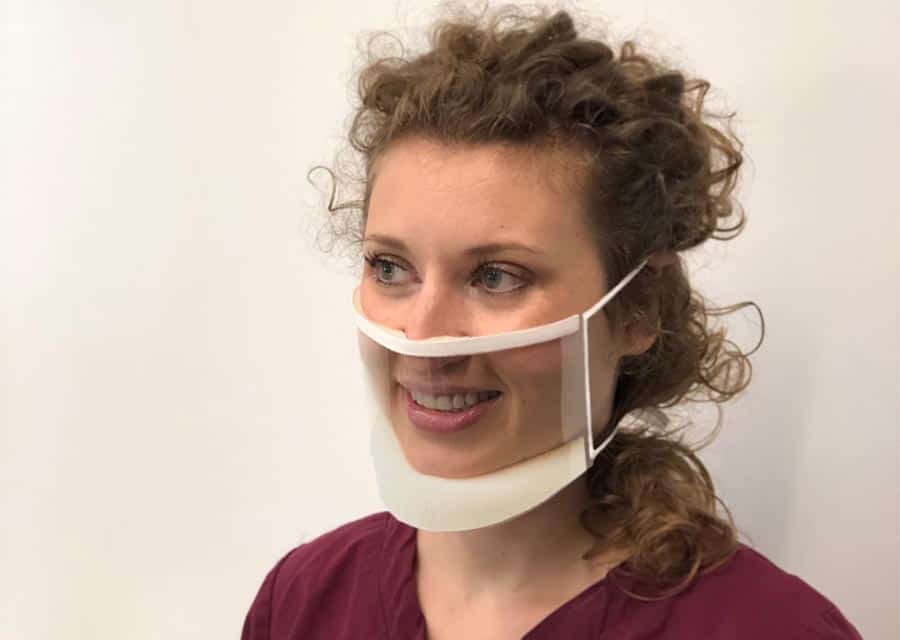250,000 clear face masks to be delivered to frontline workers to support people with hearing loss

The Department of Health and Social Care (DHSC) has announced that 250,000 clear face masks are to be delivered to frontline NHS and social care workers to support better care for people who use lip-reading and facial expressions to communicate.
NHS and care workers will be given clear face masks to help them communicate with people with certain conditions like hearing loss, autism and dementia.
The masks are see-through and have an anti-fogging barrier to ensure the face and mouth are always visible to help doctors, nurses and carers communicate better with their patients.
With around 12 million people in the UK thought to have hearing loss, the UK Government says the clear face masks will be vital for people who need to lip-read to communicate during the coronavirus pandemic.
The masks will also help those who rely on facial expressions to support communication. For example, people with learning disabilities, autism or dementia, or foreign language speakers and their interpreters.
The new deal with US-based company ClearMask will see 250,000 masks delivered to NHS trusts and social care providers across the UK over the next few weeks, DHSC has confirmed.
Minister for Care Helen Whately said: “Everyone using our remarkable health and care system deserves the best care possible and communication is a vital part of that.
“The introduction of clear face masks will help overcome some of the difficulties carers wearing PPE are facing communicating with people who rely on lip-reading. If this proves a success I look forward to increasing the supply to make sure whenever a clear mask is needed, there is one available.”
This applies across the whole of the UK and the government is working with the devolved administrations on allocations of the masks. The first delivery has already been distributed to NHS trusts, with further deliveries over the next couple of weeks.
DHSC adds that social care providers will also have access to the masks through a new pilot system with Local Resilience Forums.
DHSC and NHS England and Improvement will continue to work closely with suppliers on future orders based on demand.
Roger Wicks, Director of Policy and Campaigns at Action on Hearing Loss, said: “We welcome the procurement of clear face masks, which has the potential to improve the accessibility of health and social care services for those who rely on seeing facial expressions and lip-reading to communicate, including people who are deaf or have hearing loss.
“Since the outbreak of coronavirus, people have told us continually that they are worried about communicating in health and social care settings where face masks are now in constant use. We know that clear masks have the ability to reduce barriers for both patients and staff across the NHS and social care services.
“People need to understand the information and instructions that they are given by health and care professionals: ineffective communication and misunderstandings have the potential to harm the health and wellbeing of people with hearing loss.
“We hope that different services across the NHS and social care are able to access clear masks and effectively match them to patient need. It will also be important that these masks are complemented by effective communication tips and deaf awareness among staff to ensure that people with hearing loss get the support they need.”
The announcement of the delivery of a quarter-of-a-million clear face masks to frontline health and social care workers follows a petition that was launched back in July.
Founder of Friendly Face Mask Sonia Carley petitioned for technical and financial support for her unique medical-grade face masks, suitable for both lipreading and use with hearing aids, to be made available for NHS use.
The introduction of clear face masks across the health and social care sector suggests that the UK Government has recognised the need for masks that allow for easy communication for people with hearing loss and those who rely on lip-reading.

